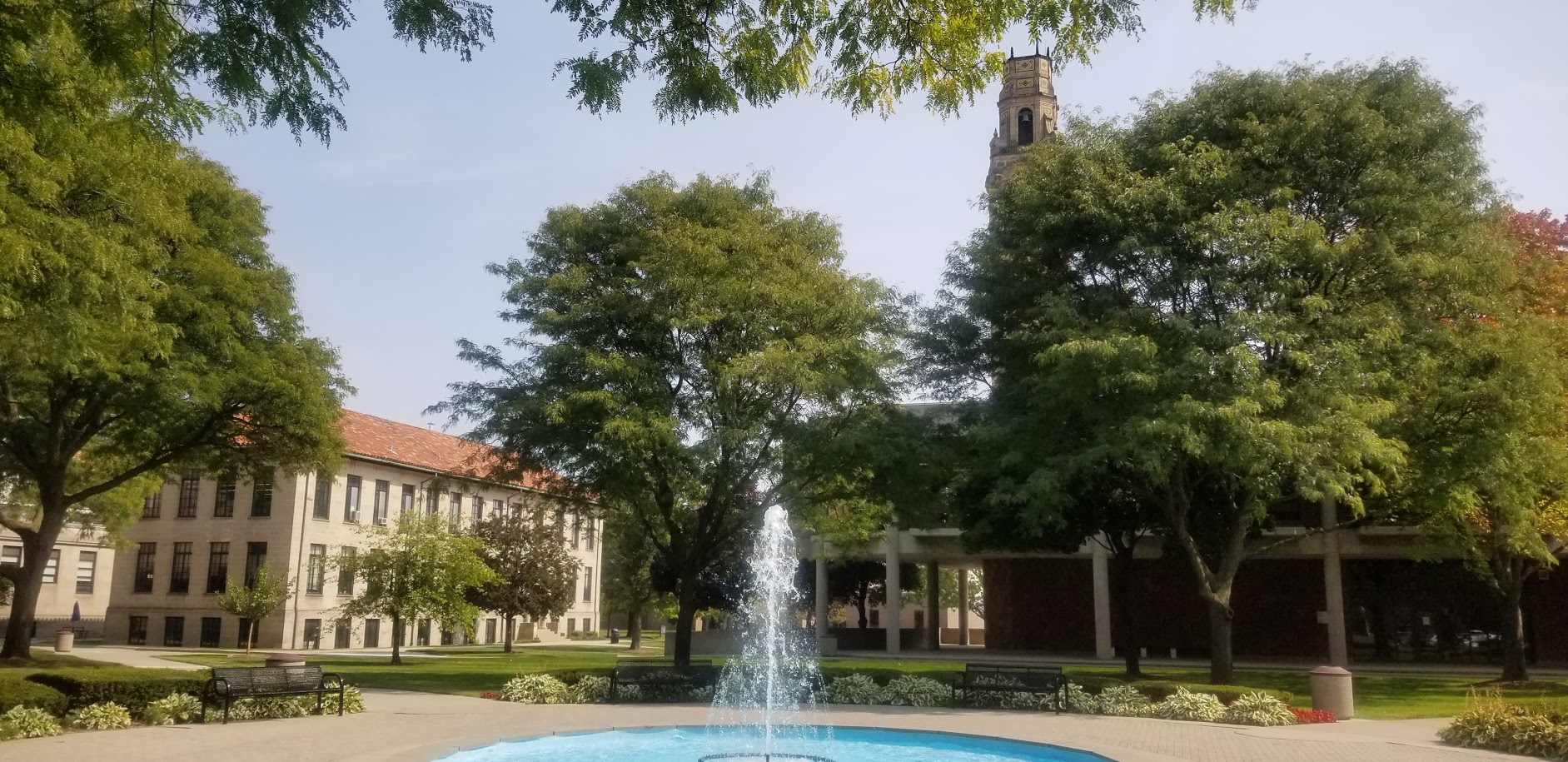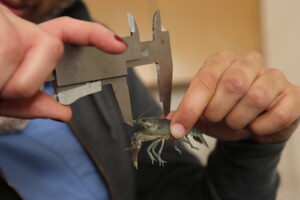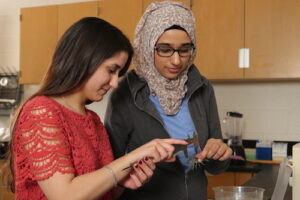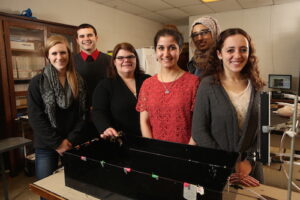
What an honor to hear from Professor and Researcher Dr. Rachelle Belanger! Dr. Belanger goes into great detail of her research and the significance of research for undergraduate students in this interview with Pre-Health Advisor Carmen Gamlin. Dr. Belanger conducts research all year around and have authored an immense amount of publications with her research students.
- Here at the University of Detroit Mercy you have a research lab. Please share the focus of your research for undergraduate students.
My research focuses on atrazine…Atrazine is a herbicide that’s liberally applied in the US Midwest, and it’s applied to farm fields…This chemical has been banned actually in Europe but it’s still being used in the United States…This chemical runs off into local streams and rivers. The target species of this chemical are plants, to get rid of weeds, to increase crop yields but there are non target species that are actually effected by this chemical so we study in my research lab the effects of this chemical on these non target species.
We use crayfish as a model organism to look at what the effects of atrazine are. We study toxicology. We take crayfish out of the field, (we usually collect from Belle Isle) and we bring crayfish back into the lab and we expose them to environmentally relevant concentrations of atrazine to look at the side effects that happen.
My students have published a lot out of my lab, and we’ve shown that actually exposure to relevant concentrations effects behavior. It effects neurons, it causes neuron damage and it also causes liver damage.
Right now were looking at DNA damage in the liver…my students collect crayfish, treat them, dissect out the liver, and do a microscope sections of the liver and are looking for these toxicological effects…we’ve seen broad effects across neurons behavior as well as liver enzymes that are being expressed.
2. You have undergraduate students assisting you in your lab. Why is undergraduate research important?
Undergraduate research teaches a lot of things that you can’t get in the classroom, and of those things that it teaches is application of the scientific method.
Students in research labs at Detroit Mercy, including mine, are applying the scientific method from the beginning to the end. They’re exploring and designing experiments there. Seeing through those experiments, doing the physical experiment themselves, collecting data, analyzing data, interpreting the data and presenting it scientifically and publishing.
The other thing that happens with all of this is teamwork. Teamwork is something that individuals need to develop because this is going to happen through the rest of your life, no matter what job you’re in. Teamwork is going to be important. So students in my research lab and in other labs as well across Detroit Mercy are building these really important teamwork skills.
Critical thinking is (something) really important as well that students build from working in a research lab…Right now in my research lab, we’re presented with some results that we really don’t understand right now but we’re working on what does these results mean in light of the scientific literature.
The other thing that students get is really good problem solving skills…students really get first-hand knowledge of the fact that experiments don’t work always the first time and for the most part they don’t work the first time so you’ve got to step back. Look online for other scientists that have advice for you or talk to colleagues around the department to get advice from them on what they would do…Problem solving skills are really important in working in a research lab.
3. What is something that you are looking forward to in the Fall of 2021 as we return to students on campus?
Going back in person in the Fall ’21 is going to be huge because my research lab will be able to collaborate in a way that we used to…So much of this past year in 2020 was working with only a few people at a time…Now that the COVID measures have been relaxed a bit…we can get together as scientists again and junior scientists to discuss then the literature, to look over our data together and to critically think about what it means and then be able to move forward in the research lab.
So much important mentoring happens in the research lab where senior undergraduate students mentor junior undergraduate students in the lab and being able to get together and work collaboratively; it’s going to be so important moving into FA 21
4. What are you teaching Fall 2021?
I am teaching animal behavior…I’m also teaching neurophysiology and neurophysiology is a course I developed when I came to Detroit Mercy. Lastly, I’m teaching Senior Seminar for the first time with Dr. Conant and Dr. Finkel.
Learn more about Dr. Rachelle Belanger’s research focus, teaching experience and more here!




